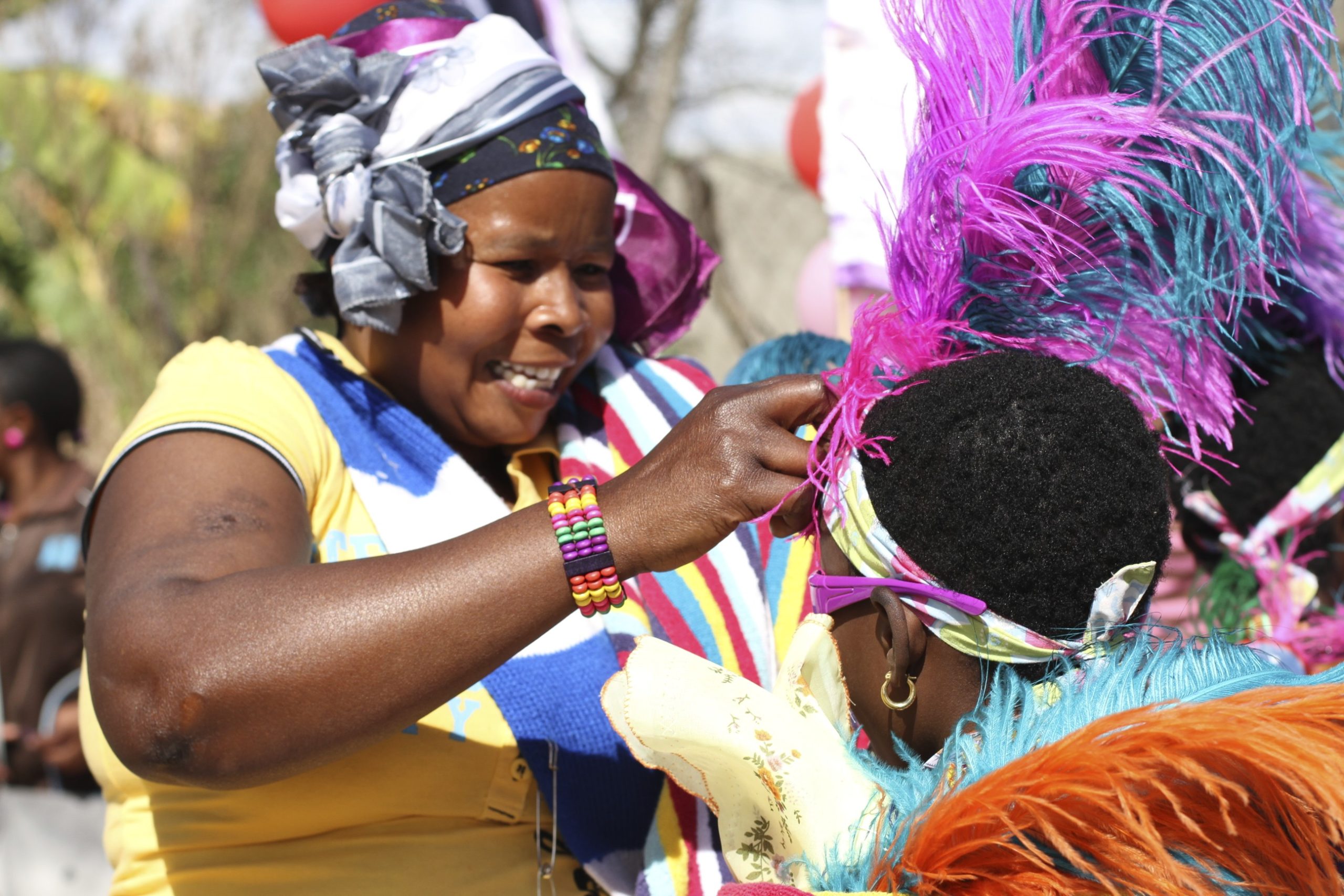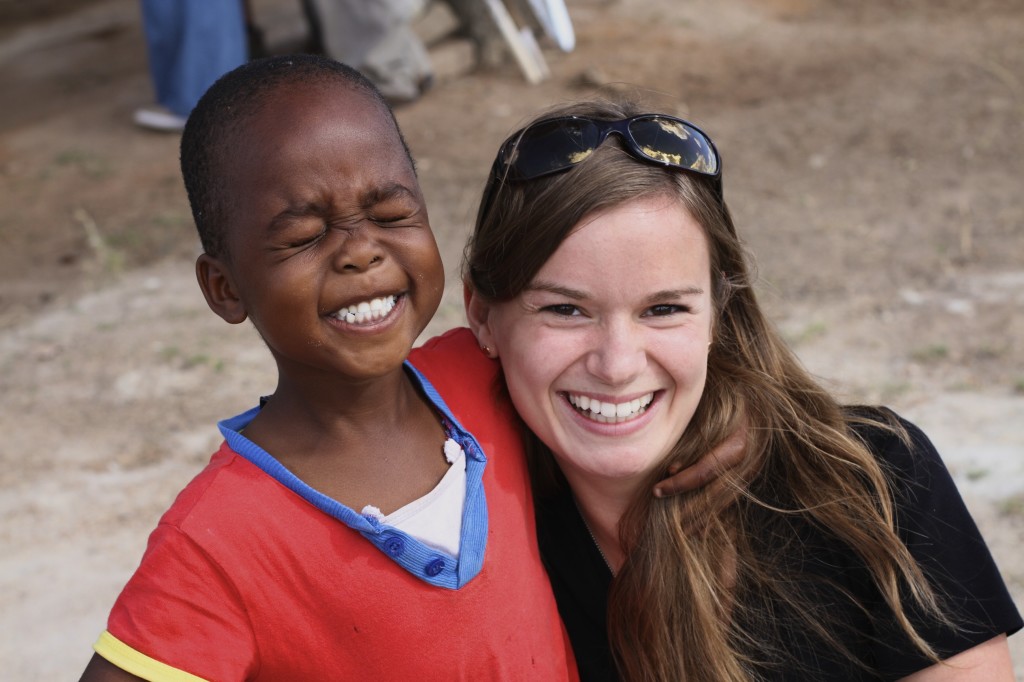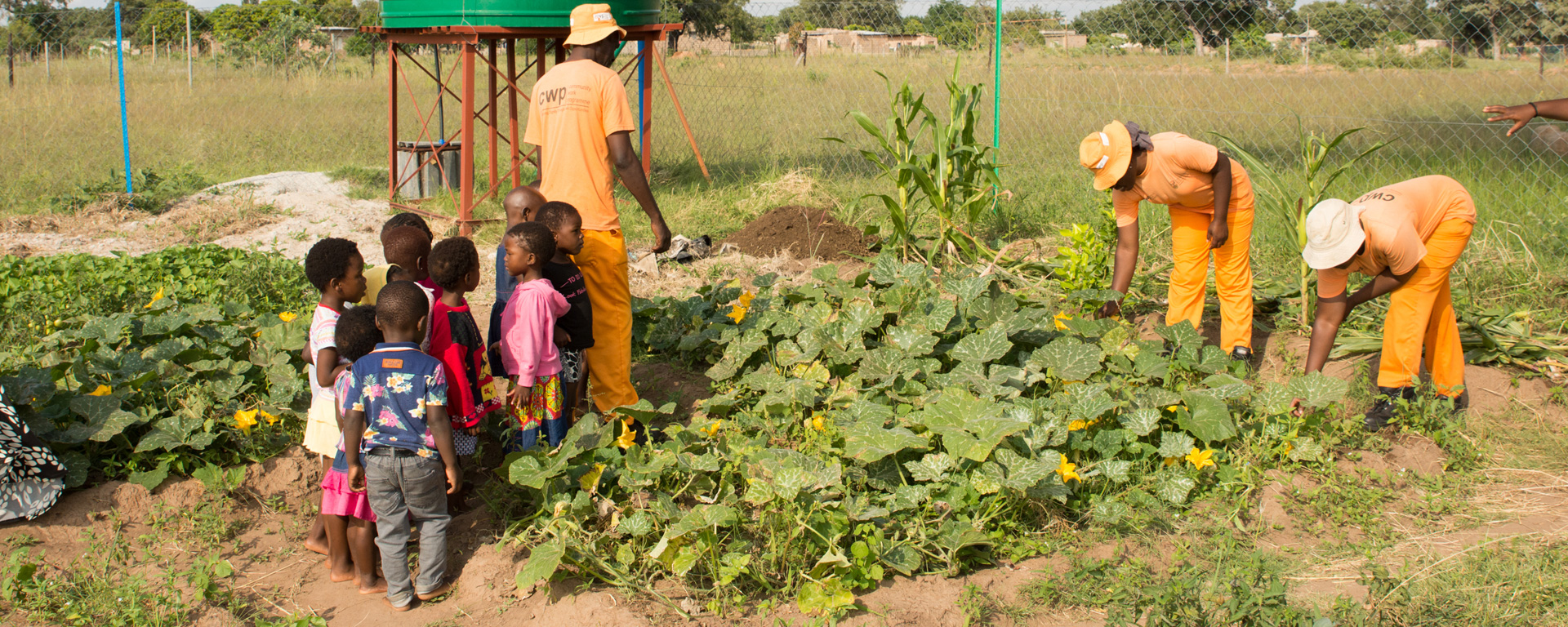
03 Aug 2013 The Girls are Back in Town
In the Shangaan communities, young girls and boys are often sent to “bush schools,” to undergo a highly-regarded rite of passage into womanhood and manhood. The initiates disappear into the bush for about one month. Today, they come home.
 Vuvuzellas are sounding from bukkies (trucks) holding up flags stretched out in the wind. And everywhere buses hopping with energy unload the bush girls (now women) frocked like psychedelic peacocks. They pronk up to the yard of a relative where the whistling and stomping begins as a fresh chicken is prepared. It’s a good time to reflect on the value of community, especially in development work. Everyone in the community wants better lives for their children. It’s important that A Spring of Hope is in tune to what kind of future the community envisions and works collaboratively to achieve it. A major criticism of development work is its ability to “take over” the jobs that government should be doing. In Limpopo, the local government is over-burdened in its commitment to increase access to improved water sources. The best thing we can do is work closely with the government, whose goals are aligned with ours, and help amplify the voices of the people the government seeks to serve. That is what we have been doing the last few days driving around the various villages. We received a list of schools without water access from the Department of Education. On Wednesday and Friday we visited these schools to determine their current situation. Some had done their own fundraising to construct a borehole. For those, we will work to provide inexpensive items such as piping to facilitate garden growth. One such school turned a broken down Playpump into an operating borehole now used to provide water to the gardens and spigot. The amazing thing is, after schools have started garden programs, the Department of Education sends out instructors to help it grow and school administrators are able to receive A Spring of Hope-sponsored gardening workshops from our flagship school, Beretta Primary. This way, I think ASOH is a tool for people to exercise their own ambitions.
Vuvuzellas are sounding from bukkies (trucks) holding up flags stretched out in the wind. And everywhere buses hopping with energy unload the bush girls (now women) frocked like psychedelic peacocks. They pronk up to the yard of a relative where the whistling and stomping begins as a fresh chicken is prepared. It’s a good time to reflect on the value of community, especially in development work. Everyone in the community wants better lives for their children. It’s important that A Spring of Hope is in tune to what kind of future the community envisions and works collaboratively to achieve it. A major criticism of development work is its ability to “take over” the jobs that government should be doing. In Limpopo, the local government is over-burdened in its commitment to increase access to improved water sources. The best thing we can do is work closely with the government, whose goals are aligned with ours, and help amplify the voices of the people the government seeks to serve. That is what we have been doing the last few days driving around the various villages. We received a list of schools without water access from the Department of Education. On Wednesday and Friday we visited these schools to determine their current situation. Some had done their own fundraising to construct a borehole. For those, we will work to provide inexpensive items such as piping to facilitate garden growth. One such school turned a broken down Playpump into an operating borehole now used to provide water to the gardens and spigot. The amazing thing is, after schools have started garden programs, the Department of Education sends out instructors to help it grow and school administrators are able to receive A Spring of Hope-sponsored gardening workshops from our flagship school, Beretta Primary. This way, I think ASOH is a tool for people to exercise their own ambitions.

Bafana and I goofing off after the Mapusha ceremony
Out here, it’s all about community. We spent the morning at the Mapusha Weaver‘s grand opening of their new facility, the New Dawn Center. The Mapusha is a women’s weaving cooperative in Acornhoek that has been spinning, dying, and weaving their own yarn since the 1970s. In 2012, the Church grounds where their workshop was located demanded higher rent which the women could not afford. An American donor stepped in to finance the New Dawn Center, a completely new facility for the weavers next to a community creche, or preschool. In the future, the facility will provide English classes to the community and a soup kitchen. I am very happy ASOH is able to sponsor such a homegrown initiative by financing a borehole. It’s a small investment in an already big idea designed by the very people who live in the community they want to assist. Fluffy white pap was cooked up in a black cauldron and peri-peri chicken and boersworst hissed over a flame. The celebration teemed with life–but it wasn’t so unusual. Even in the dead of night out here, where you can only spot the white bulbs outside of a few rural homes, music pumps through the sky. Every day is a celebration. Bafana, the son of one of our volunteers, and I enjoyed the creche playground built by Nick from Seeds of Light, one of our awesome partner organizations. Bafana especially loved the slide, which he insisted I go down even after I told him I was afraid. We made some new friends in the community and filled our bellies. Afterward, we caught a glimpse of the bush girls’s homecoming. Very good timing.
This wasn’t our only celebration while we’ve been here. The new site of the Nourish Center, if you have been following our Facebook updates, received a borehole from us last week. It wasn’t without trying times, however. Our first drill was drier than ground bone. We received permission from the local chief, Induna Mnsisi, to drill on land outside of Sarah’s one hectare. We found water there after a very tense few hours. The soil was damp, but we didn’t get that gushing we were looking for. Over the weekend, the borehole filled and we celebrated by drinking Amarula at the Chief’s house. Sarah of Nourish was thrilled to finally begin the expansion of the Center’s garden. It’s hard to say how the roles of Chiefs will evolve, or whether the bush schools will hold their cultural value. Either way, we are here to celebrate and embrace the changes the people here seek to drive.
